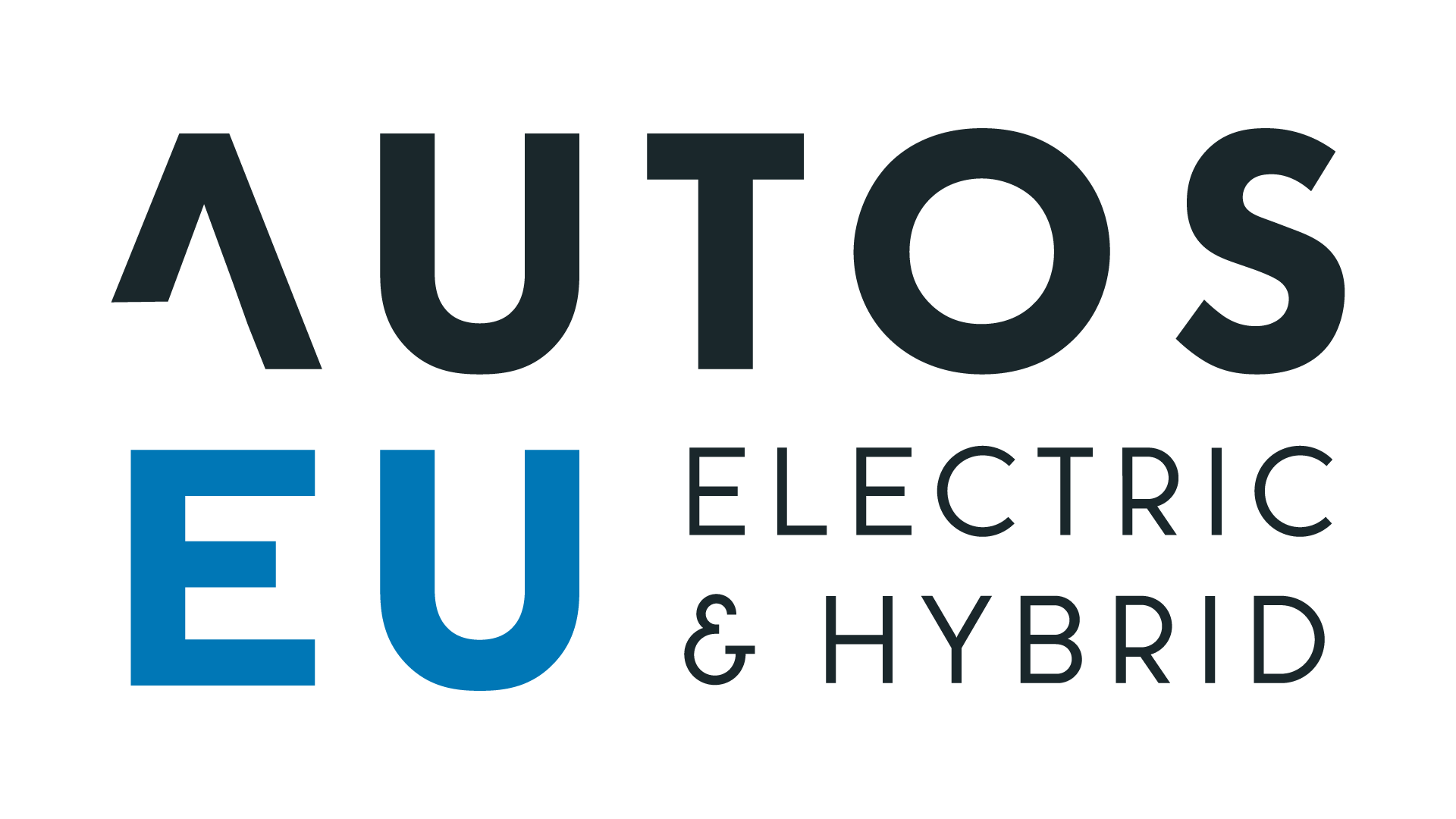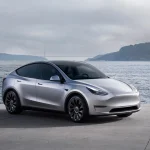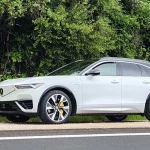
Iron trifluoride could make better electric-car batteriesIron trifluoride could make better electric-car batteries
Researchers at the University of Maryland, in conjunction with Brookhaven National Laboratory have developed a new battery cathode material that they say could triple the energy density of lithium-ion batteries.
The new material is an engineered variety of iron trifluoride, a well-known material that has had problems with rechargeability and low power production.
In an article in the journal Nature Communications (via ChargedEVs), the researchers revealed how they took iron trifluoride’s inherent ability to absorb more lithium ions and added cobalt and oxygen to iron-trifluoride nano rods to make the material absorb and release lithium ions more quickly and readily.
Brookhaven battery team: Jianming Bai, Seongmin Bak, Sooyeon Hwang; Dong Su, Enyuan Hu
In practical terms, the ability to store more lithium ions in the battery’s cathode, which increases energy density, is one of the keys to building better batteries for electric cars.
The higher the energy density, the smaller and lighter the battery pack can be for a given number of kilowatt-hours of electricity, which translates into critical miles for an electric car.
READ THIS: Panasonic works to develop cobalt-free electric-car batteries
“Cathode materials are always the bottleneck for further improving the energy density of lithium-ion batteries,” said University of Maryland scientist Xiulin Fan.
Unlike conventional silicon cathodes, which absorb lithium ions without changing their structure, iron trifluoride converts into iron and lithium fluoride as it absorbs the lithium ions. The reaction isn’t easily reversible and is slower than the intercalation process of traditional silicon cathodes, according to the researchers.
The oxygen and cobalt coating on the nano-tubes better maintains the original structure of the iron trifluoride and makes the reaction easier to reverse to recharge the battery, the researchers say.
University of Maryland team: Xiulin Fan, Xiao Ji, Fudong Han, and Zhaohui Ma
Researchers were able to look at the new material at a resolution of 0.1 nanometers using a transmission electron microscope, which allowed them to precisely engineer the materials.
Scientists around the world are still working on developing better battery materials for electric cars, cell-phones, laptop computers and other portable electronics to allow them to store more energy, and recharge faster and more reliably.
View original article at: “https://www.greencarreports.com//news/1117633_iron-triflouride-could-make-better-electric-car-batteries”
Add a comment Cancel reply
Comments (0)
รับทำ SEO สายขาว
… [Trackback]
[…] Read More on that Topic: autoseu.com/iron-trifluoride-could-make-better-electric-car-batteriesiron-trifluoride-could-make-better-electric-car-batteries/ […]
https://www.easyinsurancehub.co.uk/forum/thread-4490.html
… [Trackback]
[…] There you will find 29241 more Information on that Topic: autoseu.com/iron-trifluoride-could-make-better-electric-car-batteriesiron-trifluoride-could-make-better-electric-car-batteries/ […]
magic mushroom therapy
… [Trackback]
[…] Find More to that Topic: autoseu.com/iron-trifluoride-could-make-better-electric-car-batteriesiron-trifluoride-could-make-better-electric-car-batteries/ […]
Categories
- Activism (1)
- Adventure (1)
- Advertising (2)
- Agriculture (1)
- Air pollution (4)
- Air transport (3)
- aluminium (2)
- Amazon (3)
- Animals (1)
- Apple (2)
- Architecture (1)
- Arctic (1)
- Artificial intelligence (1)
- Augmented Reality (1)
- Auto Detailing (1)
- autopilot (1)
- battery (31)
- Best summer holiday destinations 2022 (1)
- Bicycle (1)
- biodiversity (1)
- BMW (2)
- boat (1)
- Bus (1)
- Business (4)
- Buying Guides (1)
- car (7)
- Car industry (18)
- Car News (18)
- car rental (3)
- Car Reviews (4)
- Car sales (6)
- carbon emissions (15)
- carbon footprint (3)
- Carlos Ghosn (1)
- Cars (66)
- Central Europe (1)
- CES (2)
- charging station (11)
- Children (1)
- China (12)
- Citroën (1)
- city (1)
- City transport network (2)
- clean energy (2)
- Climate (1)
- climate change (9)
- Climate crisis (4)
- Climate emergency (2)
- climate protection (2)
- CO2 emissions (39)
- Company (3)
- Competition (1)
- Conscious travel (2)
- Contamination of water (1)
- Copper (2)
- cost of living (2)
- Cuba (1)
- Cuban politics (1)
- Cybertruck (1)
- Cycling (1)
- deforestation (1)
- delivery (3)
- Denmark (2)
- Detroit (1)
- Diesel (4)
- Diesel car (7)
- e-mobility (11)
- e-scooter (2)
- Eco travel (3)
- Eco-friendly (2)
- Ecology (1)
- Economy (1)
- El Niño (1)
- Electric (11,302)
- Electric boats (1)
- electric car (107)
- Electric Cars (499)
- Electricity (5)
- Electricity consumption (3)
- Electricity market (5)
- Elon Musk (21)
- emission (1)
- Emmanuel Macron (1)
- Energy (2)
- Energy low cost (1)
- energy transition (6)
- Entrepreneur (1)
- Environment (5)
- Environment pollution (1)
- Environmental protection (4)
- EU Policy (1)
- EU-China (2)
- Europe (7)
- Europe's energy crisis (1)
- European Commission (3)
- European economy (2)
- European Union (18)
- Euroviews (6)
- Eviction (1)
- EVs (37)
- F1 (1)
- factory (4)
- fake news (1)
- family (2)
- Ferrari (1)
- fertilizer (1)
- fine (penalty) (1)
- fire station service (1)
- flight (1)
- Flying car (4)
- Food security (1)
- Ford (1)
- Formula 1 (2)
- Fossil fuels (14)
- France (39)
- free trade (1)
- Fuel (3)
- Fuel cell electric vehicles FCEV (10)
- fuel crisis (2)
- Fuel Efficiency (3)
- fuel prices (1)
- Funeral (1)
- Gas (1)
- Gas Prices (1)
- gasoline price hike (1)
- German (1)
- Germany (8)
- Giorgia Meloni (1)
- Global warming and climate change (1)
- Good News (1)
- Greece (1)
- green energy (1)
- green new deal (1)
- Green transportation (17)
- Green Week (1)
- greenhouse gas emissions (6)
- Hanoi (19)
- Health (1)
- home (2)
- homelessness (1)
- Housing market (19)
- human rights abuse (1)
- Hybrid (2,283)
- Hybrids (116)
- Hydrogen (2)
- hydrogen vehicle (2)
- IAA Mobility (2)
- Iceland (3)
- incident (1)
- income (1)
- India (2)
- Indonesia (1)
- infrastructure (1)
- innovation (1)
- International relations (1)
- Investment (4)
- iPhone (1)
- Japan (1)
- Jobs (3)
- Joe Biden (4)
- Jubilee (1)
- Lampedusa (1)
- Las Vegas (1)
- lead petrol (2)
- Lithium (13)
- liveable cities (2)
- London (3)
- Luxembourg (1)
- Luxury (2)
- luxury goods (2)
- Luxury lifestyle (2)
- Manufacturing (5)
- Market (1)
- Markets (1)
- meat (1)
- Mercedes-Benz (39)
- Migrants (1)
- minerals (2)
- Mining (5)
- Mitsubishi Motors (1)
- Mobile World Congress (1)
- Mobility (10)
- Mobility Week (2)
- Mobility Week 2021 (1)
- Mobility Week 2023 (5)
- money (3)
- Motorcycling (2)
- Motorsport (1)
- Mountain (1)
- NASA (1)
- nature (2)
- net-zero (2)
- New technologies (6)
- Next Explainers (1)
- Next In data (2)
- Nigeria (1)
- Nissan (3)
- Norway (7)
- Nuclear Energy (1)
- nuclear fusion (1)
- Nuclear power plant (1)
- Odd (1)
- oil industry (1)
- Olaf Scholz (1)
- online shopping (1)
- Oslo (1)
- Paris (1)
- parody (1)
- Petroleum products (3)
- Peugeot (1)
- plastic (1)
- Poland (1)
- Politics (1)
- Pollution (44)
- Power Plant (1)
- prices (1)
- production (1)
- Profits (1)
- Prostitution (1)
- Public transport (4)
- Racing cars (1)
- Racism (1)
- Rail transport (2)
- rats (1)
- Raw material (1)
- Recycling (4)
- Renault (3)
- Renewable energies (6)
- renewable energy (6)
- Reykjavík (1)
- Rishi Sunak (1)
- road (36)
- Road infrastructures (1)
- Road safety (7)
- Road transport (20)
- road trip (1)
- Robot (1)
- Rolls Royce (1)
- Russia (1)
- Russia's invasion of Ukraine (2)
- Sadiq Khan (1)
- safari (1)
- Safety (1)
- Sale (1)
- sales (3)
- Scotland (1)
- self-driving (43)
- Semiconductor (1)
- Shares (1)
- Show (1)
- Silicone (1)
- Software (1)
- Solar energy (2)
- solar power (5)
- Space technology (1)
- Spain (1)
- start-up (3)
- Stock exchange transaction (1)
- Stock market activity (1)
- Stockholm (1)
- Strasbourg (1)
- Students (1)
- Summer Olympics (2)
- Sustainability (7)
- Sustainable city (3)
- Sustainable design (3)
- Sustainable development (1)
- Sustainable innovation (9)
- Sustainable technology (21)
- Sustainable tourism (4)
- Sweden (2)
- Tata Motors (2)
- Tax (37)
- Taxes (2)
- Taxi (1)
- Technology (55)
- Tesla (73)
- The Boring company (1)
- Tokyo Olympic Games 2020 (1)
- Toyota (4)
- trade (3)
- traffic (1)
- Trains (2)
- Transport (11)
- transportation (3)
- Travel destinations (1)
- Tunnel (1)
- Twitter (3)
- UBER (1)
- Ukraine war (1)
- Uncategorized (6)
- United Kingdom (5)
- United States (6)
- urban planning (2)
- Ursula von der Leyen (3)
- US politics (1)
- USA (1)
- vegan (1)
- vehicle (7)
- Video (4)
- Vietnam (19)
- Volkswagen (3)
- Volvo (2)
- waste (1)
- waste disposal (1)
- Water (1)
- Water resources (1)
- White House (1)
- wind energy (1)
- Wind turbine (1)
- Winter (2)
- work conditions (1)
- World Travel Market (1)
- Xiaomi (1)
Recent Posts
About us

Popular Tags
Related posts


Volvo EX30 in the test: Really a premium car at a volume price?

VW ID.7: Estate is not called Variant... It's a Tourer







